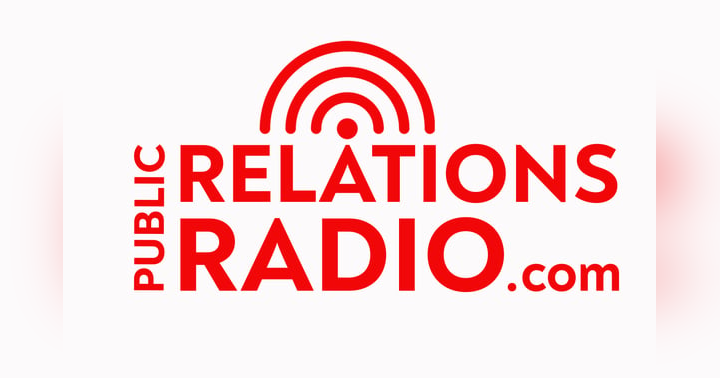Communicating a Public Health Outbreak

The unwelcome arrival of the coronavirus to American shores is testing the capabilities of our domestic health care, financial, and political systems. As public health teams work around the clock to contain the spread, it’s tough to be available to everyone, especially journalists demanding immediate updates for their news pages and broadcasts.
If you are the leader of a government agency working to manage this situation, or any other crisis, how do you lead your team’s response, while also engaging your constituents via the news media? Here are 10 tips for organizing your communications approach during the coronavirus crisis.
Embrace the media. In a crisis like this, it’s tempting to view the media as annoying. But if you take the position the media is your ally, you’ll find your message has more impact, and your job that much easier. Decide early to keep the media close, and you’ll be more successful in reaching the audiences needing your help. Journalists still will hold you accountable, but when rapid info sharing is required, a good relationship outweighs the ugly alternative.
Take control. Communicate with the media your expectations for the relationship during the crisis. For example, you might ask journalists for the opportunity to hear every rumor or tip before it’s published, to make sure it’s not false. This may allow you to control bad information while helping reporters maintain their credibility by fact-checking the rumors and gossip coming into their newsrooms. In doing so, you’ll also have access to raw intelligence that could lead to changes in policy or messaging, or both.
Establish ground rules. Everyone wants, and needs, to hear from you, including the media. It’s sometimes difficult to lead your team’s response when journalists are calling all day, asking for just a “couple of minutes of your time.” Give them access but organize it into one or two daily briefings. This approach brings order to the information sharing process, and trains journalists to direct their coverage toward the next scheduled session.
Share the load. Is there a trusted and well-respected deputy able to shoulder some of the media burden? Perhaps you handle one daily briefing, while the deputy takes the other? This allows you to be visible to the public, while also maintaining leadership duties. If you establish this cadence early, it will become routine and accepted by your media community.
Empower your media team. Whether you employ one public relations professional, or an entire team of communicators, empower staff to handle the “routine” tasks of media triage. Also, make sure key PR advisors are in the room when decisions are made, and that they’re aware of your expectations about information sharing. Allow capable staffers to take as many questions as possible, while pushing the most important inquiries to the next media briefing. Listen to your communications team members and always make sure to give them your time during a crisis. Consider them your connection to the audience and the best equipped to predict public reaction to agency decisions.
Get a loan. Not a bank loan, but a staff loan. No matter the size of your communications team, it’s likely you’ll need more help. Consider borrowing public affairs staff from other state, county, or local government agencies until your crisis subsides. Also, deputize government relations staffers as back-up communicators. Likewise, personnel working with external audiences inside department programs might qualify to help in a pinch. PR pros working for community non-profits are another good resource when volunteers are needed. These recruits probably won’t answer media questions, but they can take incoming requests for information, and help research answers, especially helpful when working up briefing materials needed for daily media availabilities.
Manage expectations. The news cycle is vicious. It never ends. Do you want to be up all night or available all weekend handling media inquiries? The nature of the coronavirus crisis requires 24-hour surveillance. Reporters know this. Your communications shop certainly has an on-call process in place. But how does it address requests for live interviews on local weekend morning shows? Or calls from national cable television news producers? It’s wise to be available, but with limits. Direct staff to tell producers ahead of time what you, or your surrogates, can do over the weekend. Let them know who is available and when.
Avoid exclusives. There may be pressure to leak breaking developments to favored media outlets. Political forces might suggest using this opportunity to get even with unfriendly journalists by excluding them from important updates. It’s rare but it can happen. If possible, avoid choosing winners and losers. We’ve seen how a lack of transparency in the early days of this epidemic has hampered public confidence. When engaging the media in a crisis like this, play no favorites with information.
Don’t give in. In the rush to be first with breaking news, it’s possible journalists in your community will publish or broadcast inaccurate information. When that occurs, be clear and firm with your request that it be corrected immediately. Don’t worry about offending a journalist or his or her editor by asking for a correction. If you were not given the opportunity to respond, if your response was not considered, or if the information is incorrect, push back hard. The public’s health and well-being demand it.
Stay flexible. In a crisis, everything can change, often without notice. Be willing to change your briefing schedule. Revise messaging if needed. Use a different spokesperson where required. Crisis plans are good, but they have expiration dates. Be open to making changes to your media approach if the circumstances require an adjustment in communication strategies or tactics.
Journalists can drive you nuts, especially in times of chaos or uncertainty. They’re never satisfied. They always have more questions. Their timing is often horrible. Despite all of this, remember your goal. Reporters can reach mass audiences quickly. People follow their advice. Media channels are a key weapon in the fight against coronavirus. Managed well, journalists can be a strong ally in the campaign to contain and end the virus’ spread.
By Robert Johnson, Award-Winning Podcast Producer & Strategic Communications Officer, Riester Public Affairs, Washington, D.C.






